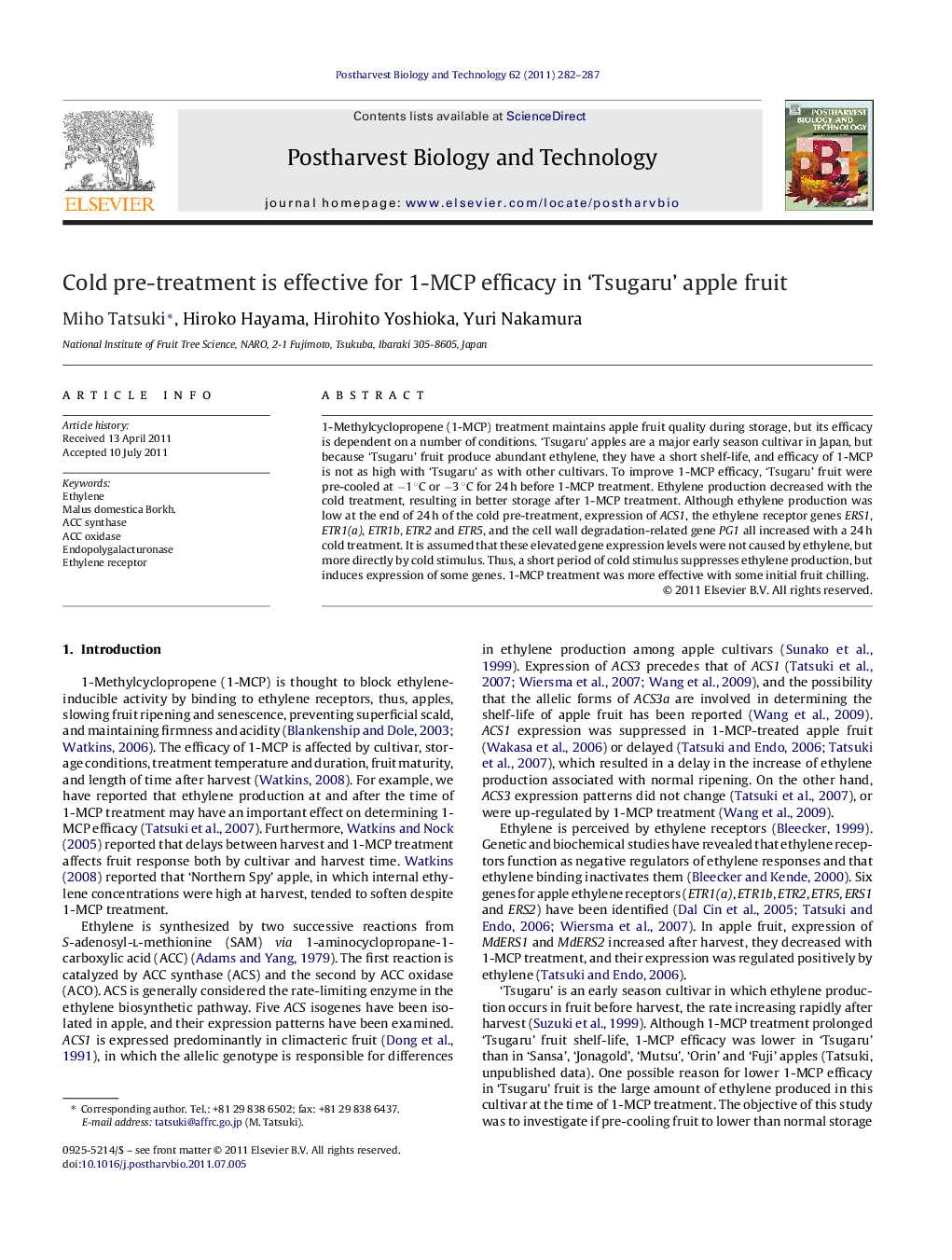| Article ID | Journal | Published Year | Pages | File Type |
|---|---|---|---|---|
| 4518879 | Postharvest Biology and Technology | 2011 | 6 Pages |
1-Methylcyclopropene (1-MCP) treatment maintains apple fruit quality during storage, but its efficacy is dependent on a number of conditions. ‘Tsugaru’ apples are a major early season cultivar in Japan, but because ‘Tsugaru’ fruit produce abundant ethylene, they have a short shelf-life, and efficacy of 1-MCP is not as high with ‘Tsugaru’ as with other cultivars. To improve 1-MCP efficacy, ‘Tsugaru’ fruit were pre-cooled at −1 °C or −3 °C for 24 h before 1-MCP treatment. Ethylene production decreased with the cold treatment, resulting in better storage after 1-MCP treatment. Although ethylene production was low at the end of 24 h of the cold pre-treatment, expression of ACS1, the ethylene receptor genes ERS1, ETR1(a), ETR1b, ETR2 and ETR5, and the cell wall degradation-related gene PG1 all increased with a 24 h cold treatment. It is assumed that these elevated gene expression levels were not caused by ethylene, but more directly by cold stimulus. Thus, a short period of cold stimulus suppresses ethylene production, but induces expression of some genes. 1-MCP treatment was more effective with some initial fruit chilling.
► 1-MCP is not as effective on ‘Tsugaru’ apple fruit as it is on other cultivars. ► To improve 1-MCP efficacy, fruit were pre-cooled before 1-MCP treatment. ► Ethylene production decreased with cold treatment, resulting in better storage after 1-MCP treatment. ► Expression of ACS1, some ethylene receptor genes, and the cell wall degradation-related gene PG1 increased at the end of a 24 h cold treatment. ► 1-MCP was more effective after initial fruit chilling.
